Week-to-Week: A Critical Reality Check with Alan Sepinwall
How Reality TV's place in the industry shifted in the 15 years since Alan last covered the genre
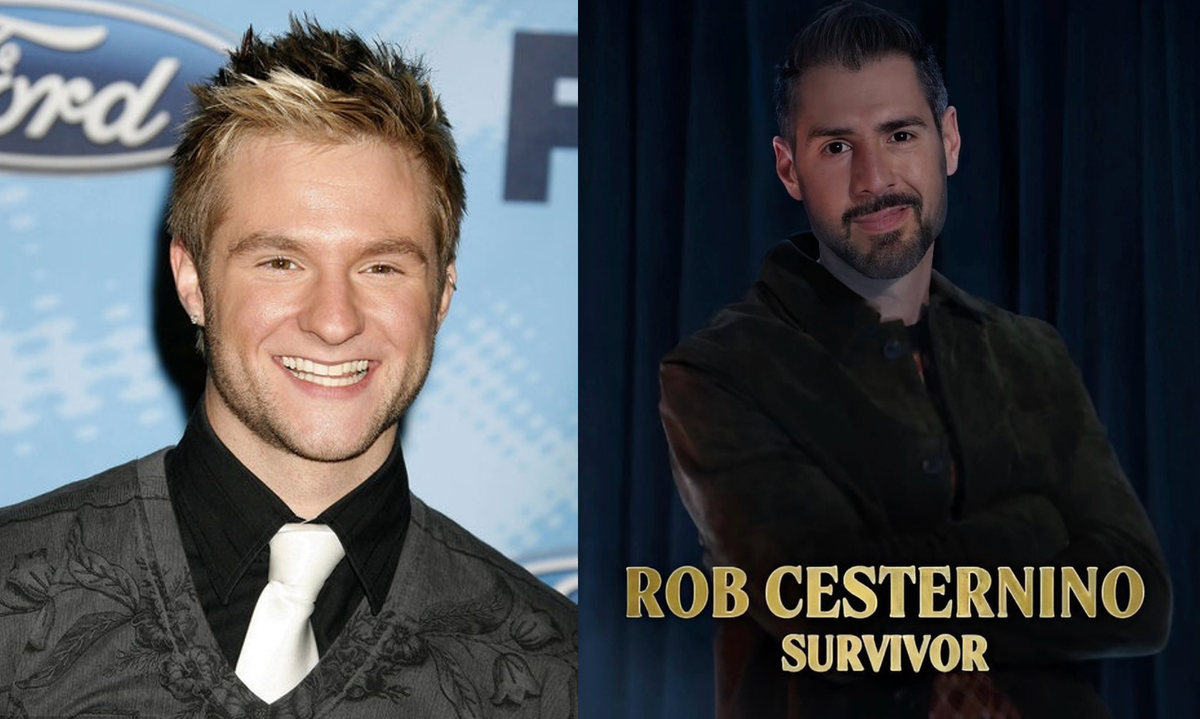
This is a conversation between Myles McNutt from Episodic Medium and Alan Sepinwall from What’s Alan Watching? Because we’ve been covering TV online for so long, we couldn’t resist digging into the process of what kinds of shows we each cover. We’ll be talking about procedurals on What’s Alan Watching? and reality TV here at Episodic Medium. In true procedural fashion, you can read them in any order you like, but it probably makes more sense to read this one first.
As a reminder, our annual subscription drive ends tomorrow, 9/30. You can get 20% off a year of reviews, plus a discount on our Loyal Viewer tier. You can find out more about our fall schedule and the subscription drive here.
Myles McNutt: Alan, since we’re on my turf, let’s go into some context for where this collaboration came from. When you were setting up your Discord channel for your What Else is Alan Watching? Tier, some of your subscribers had a suggestion based on a choice I made in setting up my own Discord for subscribers at our Loyal Viewer tier: to create different channels for different genres, to help categorize conversation.
While this is logical enough for Drama or Comedy—beyond trying to figure out where to talk about The Bear, which let’s not open that Pandora's box—you noted when you created your reality category that it wasn’t an area you had a lot of experience in lately. And it was only at the prompting of Friend of Our Newsletters Sarah D. Bunting that you added an additional Procedurals category.
It struck me as an opportunity to reflect on the narrowing of critical purviews in the Peak TV era. You commented back in 2022 on the decline in the volume of episodic reviews/recaps in recent years, but there’s also been a clear consolidation in terms of genre. Back in 2010, in the final year of your time blogging as an extension of your work at the Star-Ledger, you were dropping in on Survivor and American Idol on a regular basis, and Burn Notice was probably the closest thing to a procedural you were recapping at the time. And while your newsletter—before it became your primary home—gave you some outlets to write about shows like Poker Face, and opportunities to reflect on the shows you were watching beyond the reviews you were writing, the vast majority of shows you’ve covered weekly have been serialized dramas.
As noted, our conversation about procedurals can be found in your newsletter, but given that we’re covering Reality TV more regularly here at Episodic Medium—including both Survivor and The Traitors—I thought it would be the best place to get you to reflect on what happened to sever you from the genre over the past 15 years.
Alan Sepinwall: [extremely fake BoJack Horseman closing theme singer voice] Back in the 2000s, I wrote about a lot of reality shows…
Sorry, started writing that sentence and couldn’t get the song out of my head. Anyway, in the Blogspot version of What’s Alan Watching?, I wrote weekly about Survivor and American Idol for many seasons, and periodically checked in on Top Chef, The Amazing Race, and a few other OG reality competition shows. I was doing it in part because I liked those shows, in part because they were huge in the zeitgeist, and in part because there simply wasn’t as much overall TV, so I had the time to talk about Gary Hogeboom pretending to be a landscaper on Survivor and other unscripted errata.
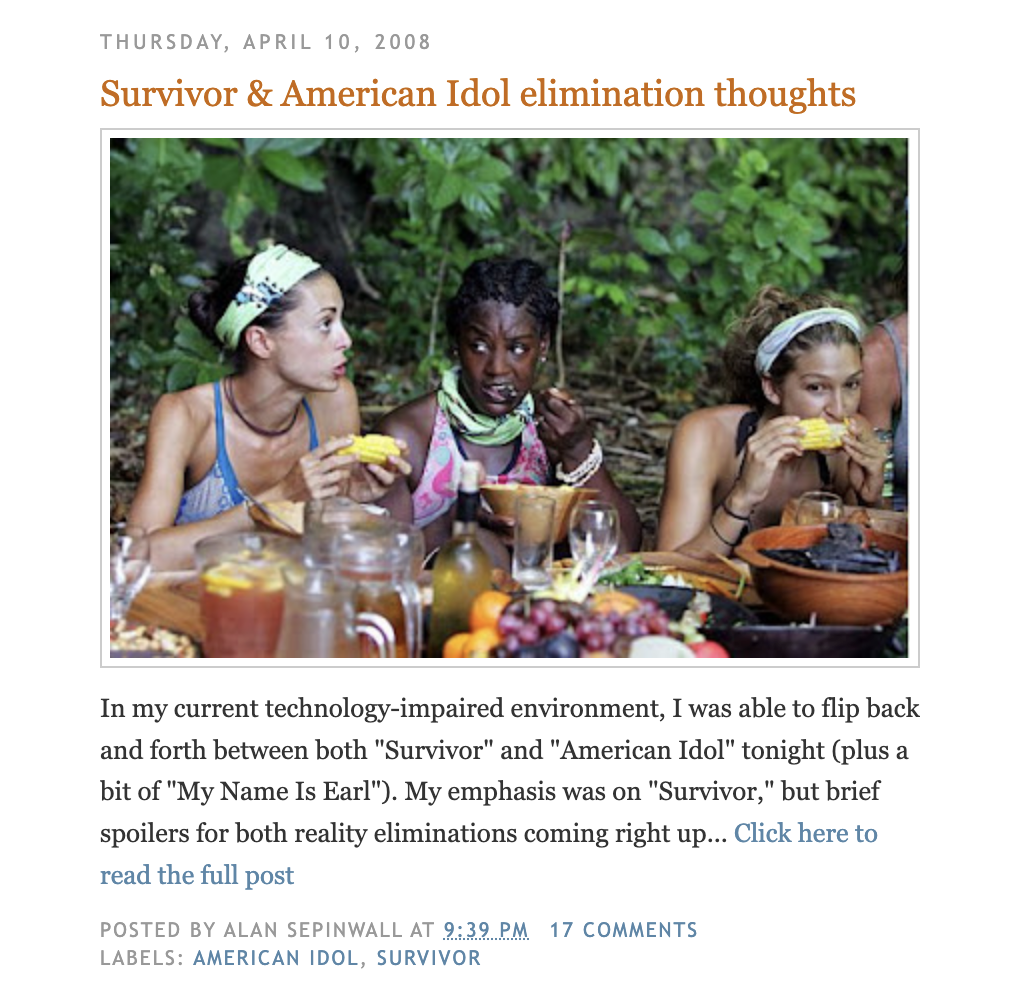
When I moved to HitFix in 2010, Dan Fienberg already had the reality space taken care of. So my writing focus turned almost entirely to scripted TV. And once that became all that I was writing about, it became all I was watching, especially as we entered the Peak TV period where even someone who only wrote about scripted TV couldn’t hope to keep up with all of it. I have no beef with Survivor—I’m impressed that Dan and so many of my other TV critic pals still find it so engaging after all these years—and the others, but I also don’t particularly miss covering them. And even in the Blogspot period, I got a sense that most of the people reading me preferred my take on dramas and comedies to me analyzing the beatboxing of Blake Lewis on American Idol Season Five.
Myles, you keep up with reality TV in a way I don’t. What do you find is the overlap between people who love The Traitors and people who love Andor or The Diplomat?
MM: First of all, Alan Sepinwall analyzing Blake Lewis beatboxing was load-bearing culture writing, as far as I’m concerned.
So part of why I wanted to discuss this is that I know I’m fighting against the tide a bit on this one. When I founded Episodic Medium as a solo project, I started writing about Survivor because it was starting a new season just as the newsletter was getting going, and it seemed like a more low-stakes way to expand coverage than taking on another in-depth drama in addition to the first season of Severance. It was a value-add for people who wanted to support my work, plus a draw for those still watching the series.
Once I started adding more contributors and expanding coverage, the way I had the newsletter set up on Substack allowed users to unsubscribe from different shows. As a result, I literally saw the lack of overlap as over 250 long-term subscribers took action to avoid even getting emails about Survivor. I also had someone unsubscribe from the newsletter offended we were covering Survivor and not covering *Insert Prestige Drama*. (It might have been The Diplomat, even, although we skip most Netflix shows for binge reasons).
Your experience is obviously somewhat distinct: we could ask, for example, whether you would have stuck with some of the reality shows if Dan wasn’t covering the beat. But I do think that the combination of Peak TV’s explosion of scripted content (even on channels that were built on the backbone of reality content) and the death of the monocultural reality show have really combined to sever the perceived audiences for this programming. This isn’t to say there isn’t an audience for coverage of shows like RuPaul’s Drag Race or Project Runway (which just finished airing a woefully produced season on Freeform/Hulu), but rather that it’s a more divergent audience from the scripted shows than it was a decade ago.
That said, to your ongoing desire for TV that acts like TV, reality TV remains a genre built around weekly episodes and subsequent conversation (unless you’re Project Runway and you copied Netflix’s bullshit “delay the elimination until the beginning of the next episode to encourage people to keep watching” which makes no sense when you’re airing weekly, okay, rant over). We’ve seen this happen with The Traitors, which after releasing the first season as a binge shifted to a weekly model in response to the show’s breakout success. I truly think the people yearn for that kind of monocultural moment, but I also think that the stigma of reality TV after two decades of Kardashians and Housewives has become ingrained in ways it wasn’t back in 2012.
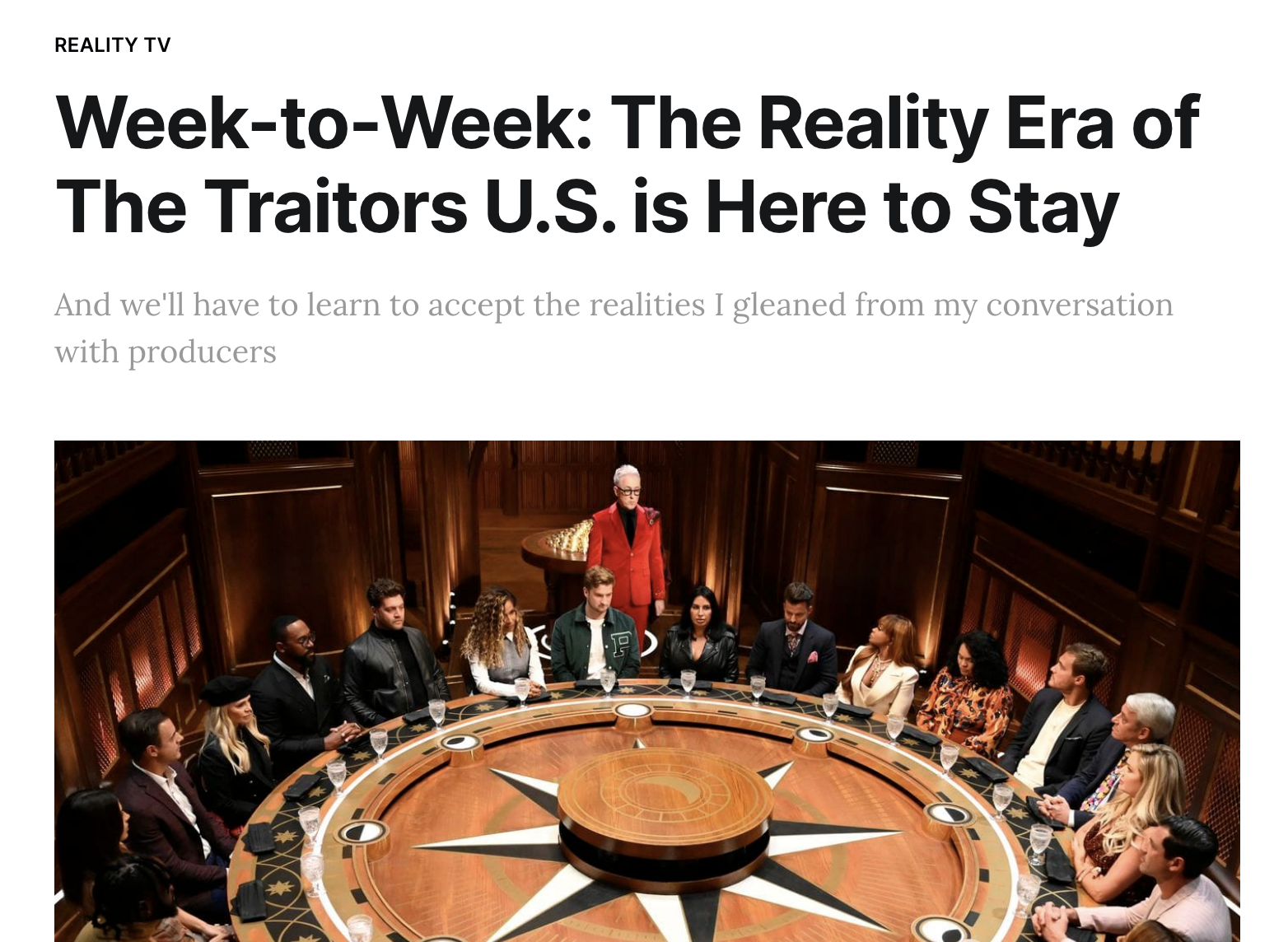
Coverage is one thing, but have any reality shows in this last decade caught your attention? Was something like The Traitors enough of a success to get you to sample?
AS: I’ll admit to experiencing some FOMO when The Traitors started to take off. And a part of me is fascinated by the idea of watching a new season of Survivor for the first time since either the Fans vs. Favorites or Heroes vs. Villains season (I watched all of the former. I think I started the latter, but definitely didn’t finish it), just to see if I recognize the show at all at this point.
But I have FOMO for far more scripted shows. Plus I need to devote time to my family, to books (watching nearly everything Rod Serling ever wrote took quite a while), etc. If somebody else in my household was really into a reality show, I’d watch it with them. But they’re not, and on my own, my tastes are generally going to gravitate elsewhere.
Myles, if I were to magically have a hole in my viewing schedule where I had either run out of scripted things or just wasn’t in the mood, what’s a reality show or season of recent vintage that you would suggest I try?
MM: Your point about the social function of reality TV is important—after all, it’s what had so many of us watching shows like American Idol in the first place, and certainly the longevity of Survivor can be owed to how glued we were to our TVs 25 years ago this summer. And it’s what still fuels so many of the big reality hits, whether it’s RuPaul’s Drag Race’s rise into the (relative) mainstream on MTV or The Traitors’ cross-section of reality stars on Peacock.
For this reason, while there are certainly recent reality shows I’ve enjoyed and would recommend—ABC’s Claim to Fame, where relatives of famous people compete to guess who their fellow contestants are related to, will be missed after its cancellation—my answer to this question is always going to be the next one. While you could no doubt enjoy binging back through a particular great Survivor season you missed, aren’t you going to get more out of seeing Mike White and some familiar faces from your past take part in the 50th season, and experiencing that alongside a combination of long-time viewers and fellow returnees? And while either the second or third Traitors seasons have plenty to enjoy for even a lapsed fan of competitive reality shows, being part of the conversation around the epic battle between Ron Funches and Donna Kelce we’ve been pining for as a culture is probably going to be a richer experience.
Although, as I write this, it’s reinforcing the divides that marginalized reality TV from a “critic’s” beat in the first place. Back in 2012, Reality TV’s place in television culture was linked to the primacy of broadcast networks and weekly rituals, and covered accordingly. But as those rituals started to fade away in the streaming era, and you and other critics stopped covering reality programming through that lens, the genre’s cultural footprint was increasingly defined by the celebrity-driven docuseries that dominate on cable and have naturally made the move to Netflix et al. And while Netflix continues to invest in some attempts at competition programming—including the U.S. rights to The Great British Bake-Off—their biggest successes like Love is Blind have been shows that embrace the logics of reality TV as an engine of and space for celebrities.
There’s also the factor of gender: whereas most serialized dramas are understood in masculine terms, reality TV removed from its monocultural moment has become largely feminized, both in its perceived audience and in the tabloid frameworks through which it’s covered online. Perhaps this explains The Traitors’ success, managing to create a format and casting structure that serves fans of an earlier era of competition reality shows while also including enough Housewives and Bachelor alumni to activate the tabloid-esque spaces where the genre thrives.
And so I guess my final question for you, Alan, is what you think would happen if you suddenly started recapping Survivor next Spring, or if you had gone to your editors at Rolling Stone wanting to review a new reality show? Do we think that the audience for television criticism and the audience for Reality TV has splintered too far, or has your Discord channel opened a door for a crossover group looking for that kind of discussion?
AS: Your question prompted me to go ask the reality TV fans on that Discord if they had suggestions. One asked, “Are you too straight for Drag Race?” Others suggested The Traitors—maybe I’ll wait for old Survivor fave Rob Cesternino to be a contestant?—and Top Chef, which for the moment feels like the best contender. I’ve never seen it with Kish as host (or contestant, for that matter), and there’s a chance it could be communal family viewing. We do watch Somebody Feed Phil together, which is a different form of unscripted TV about food.
So let’s wrap this up with the most important question, Myles: am I too straight for Drag Race?
MM: I stand by my belief that a good reality show—Drag Race is one—can leverage real people to create engaging and dynamic television offering distinct pleasures for anyone interested in a good story.
I also stand by my belief that some people are just too straight for Drag Race, and that doesn’t make you any less of an ally.
Thanks for reading, everyone. As noted, you can now find Alan's writing—including, who knows, maybe some thoughts on reality TV—exclusively on his newsletter, What's Alan Watching, where he's reviewing multiple shows a week. You can find out more about his subscription tiers here.
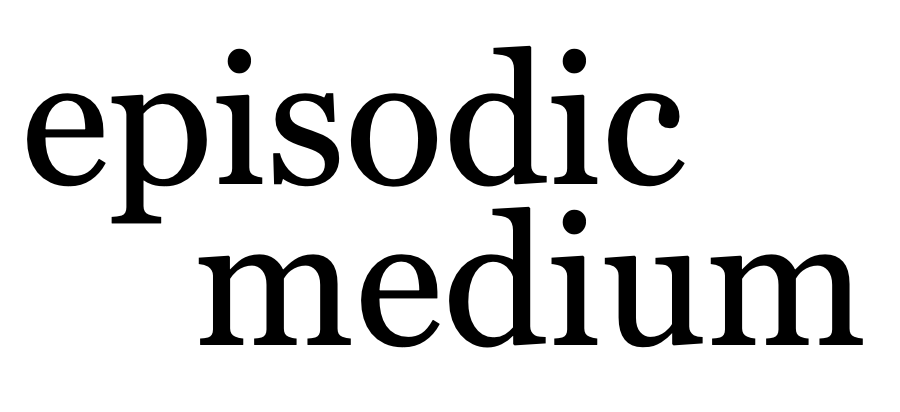
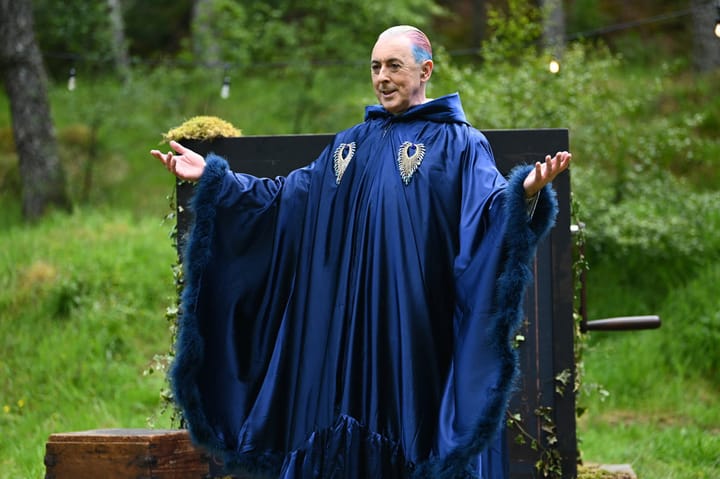
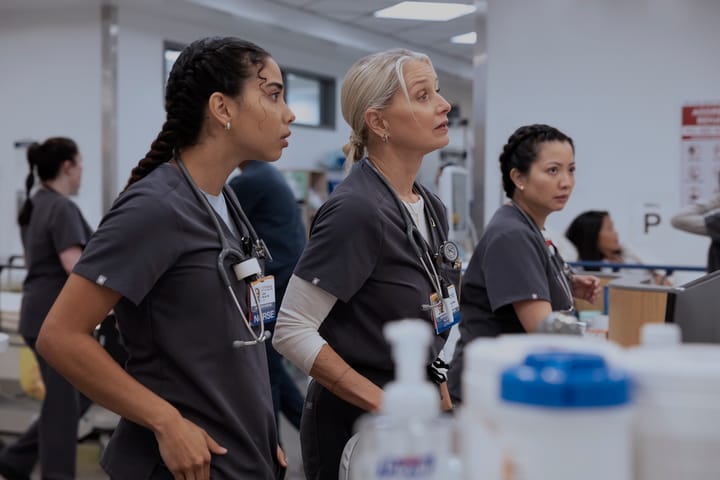

Comments ()